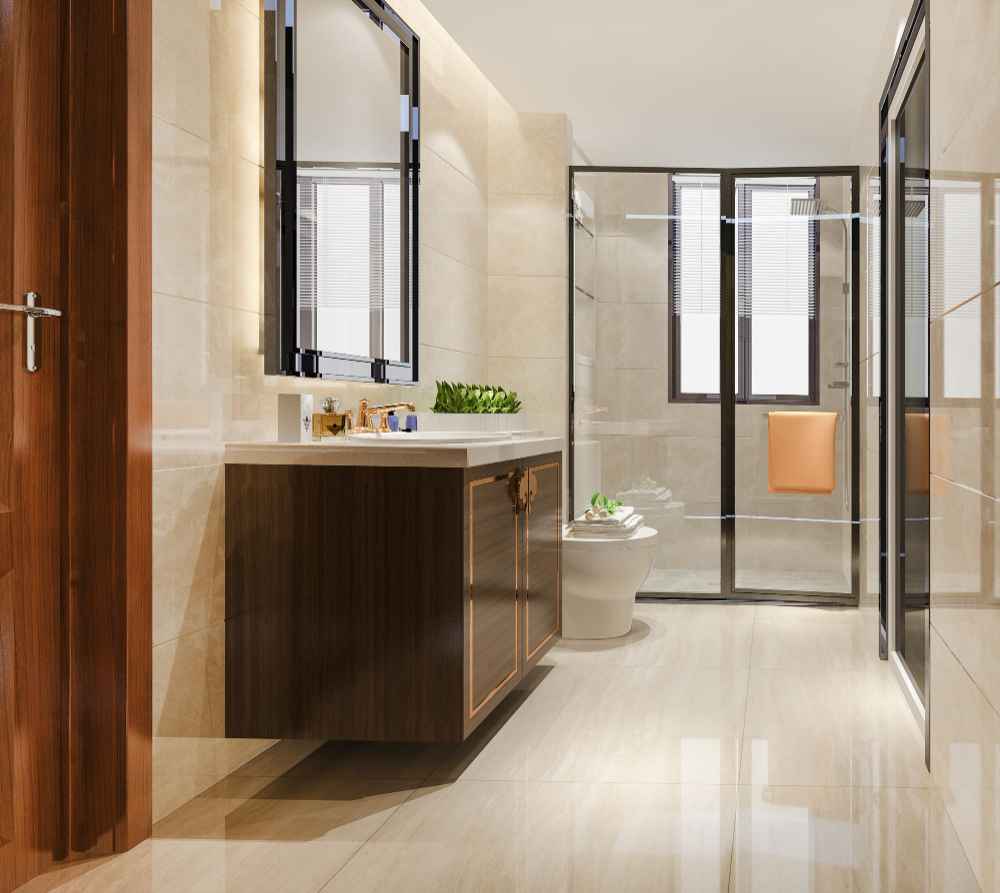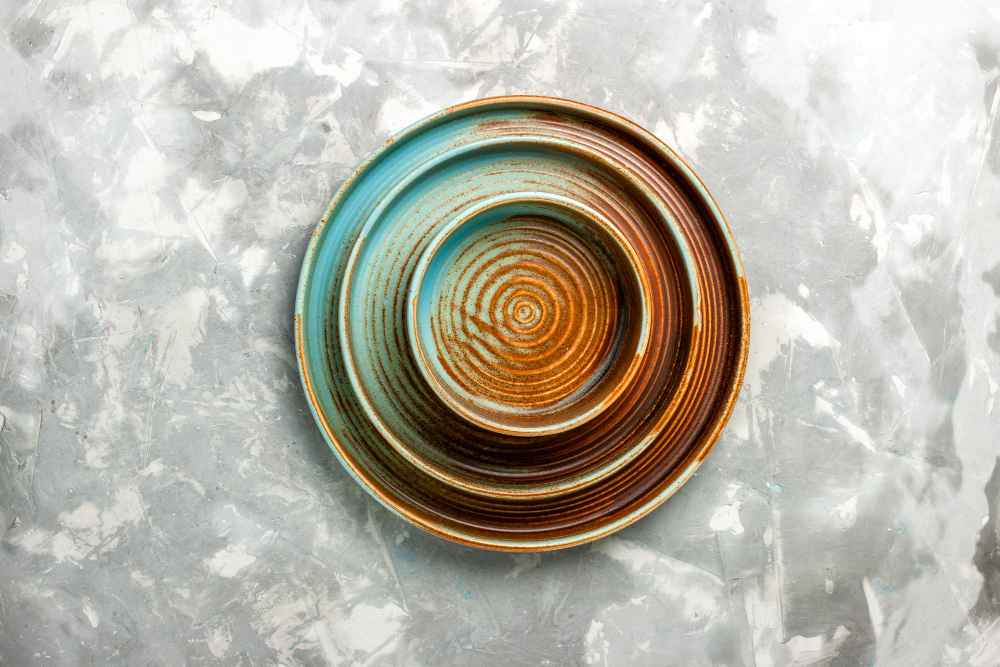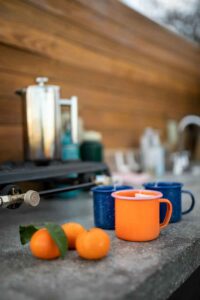Outdoor kitchens have become a popular extension of modern living spaces, offering a perfect blend of functionality and entertainment. Whether you’re hosting a summer barbecue or enjoying a quiet evening meal under the stars, an outdoor kitchen elevates the experience. One of the most critical components of any outdoor kitchen is the countertop. which is why you need to learn to care for your countertop. It’s not just a surface for food preparation; it’s a statement piece that ties the entire design together. However, choosing the right outdoor kitchen countertop requires careful consideration of durability, aesthetics, and maintenance.
In this guide, we’ll explore the best materials for outdoor kitchen countertops, their pros and cons, and tips for making the right choice for your space.
Why Outdoor Kitchen Countertops Are Different
Unlike indoor countertops, outdoor countertops are exposed to harsh weather conditions, including UV rays, rain, snow, and temperature fluctuations. This means the material you choose must be:
- Weather-resistant: Able to withstand extreme temperatures and moisture.
- Durable: Resistant to scratches, stains, and cracks.
- Low-maintenance: Easy to clean and maintain over time.
- Aesthetically pleasing: Complements your outdoor kitchen design.
Let’s dive into the top materials that meet these criteria.
1. Granite: The Timeless Choice
Granite is a natural stone that has long been a favorite for both indoor and outdoor countertops. Its unique patterns and wide range of colors make it a versatile choice for any design style.
Pros:
- Extremely durable and resistant to heat, scratches, and stains.
- Adds a luxurious, high-end look to your outdoor kitchen.
- Naturally resistant to moisture when properly sealed.
Cons:
- Requires periodic sealing to maintain its resistance to stains and moisture.
- Can be expensive compared to other materials.
- Heavy, so proper support is essential.
Best For: Homeowners seeking a premium, long-lasting countertop with natural beauty.
2. Concrete: Modern and Customizable
Concrete countertops have gained popularity for their modern, industrial look and endless customization options. They can be molded into any shape, tinted to match your design, and finished with various textures.
Pros:
- Highly durable and resistant to heat and scratches.
- Can be customized in terms of color, texture, and edge design.
- Seamless appearance for a sleek, contemporary look.
Cons:
- Requires regular sealing to prevent stains and cracking.
- Can develop hairline cracks over time due to temperature changes.
- Heavy and may require additional structural support.
Best For: Those who want a modern, customizable countertop with a unique aesthetic.
3. Stainless Steel: Sleek and Industrial
Stainless steel is a popular choice for outdoor kitchens, especially for those who love a sleek, industrial vibe. It’s commonly used in professional kitchens due to its durability and hygienic properties.
Pros:
- Resistant to heat, stains, and corrosion.
- Easy to clean and maintain.
- Hygienic and non-porous, making it ideal for food preparation.
Cons:
- Prone to scratches and fingerprints, which can affect its appearance.
- Can get hot in direct sunlight.
- Limited design options compared to other materials.
Best For: Homeowners who prioritize functionality and a modern, professional look.
4. Tile: Affordable and Versatile
Tile countertops offer a budget-friendly option with endless design possibilities. From ceramic to porcelain, tiles come in a variety of colors, patterns, and textures.
Pros:
- Affordable and easy to replace if damaged.
- Wide range of design options to match any style.
- Resistant to heat and stains.
Cons:
- Grout lines can be difficult to clean and may stain over time.
- Tiles can crack or chip under heavy impact.
- Not as seamless as other materials.
Best For: Budget-conscious homeowners who want a customizable and colorful countertop.

5. Quartz: Engineered for Durability
Quartz countertops are engineered from natural quartz crystals and resin, making them one of the most durable options available. While traditionally used indoors, some quartz brands now offer outdoor-grade options.
Pros:
- Non-porous, making it resistant to stains, moisture, and bacteria.
- Low maintenance and doesn’t require sealing.
- Available in a wide range of colors and patterns.
Cons:
- Can fade over time when exposed to direct sunlight.
- More expensive than some other materials.
- Not all quartz products are suitable for outdoor use, so check with the manufacturer.
Best For: Those who want a low-maintenance, durable countertop with a polished look.
6. Soapstone: Natural and Elegant
Soapstone is a natural stone known for its smooth, matte finish and rich, dark colors. It’s a lesser-known option but offers unique benefits for outdoor kitchens.
Pros:
- Naturally resistant to heat and stains.
- Develops a beautiful patina over time.
- Non-porous and doesn’t require sealing.
Cons:
- Softer than granite, making it prone to scratches and dents.
- Limited color options (typically gray or black).
- Requires regular oiling to maintain its appearance.
Best For: Homeowners who appreciate a natural, rustic aesthetic.
7. Porcelain: Durable and Stylish
Porcelain countertops are a relatively new option for outdoor kitchens but are gaining popularity due to their durability and versatility. They are made from high-density ceramic and can mimic the look of natural stone, wood, or concrete.
Pros:
- Highly resistant to UV rays, stains, and scratches.
- Lightweight compared to natural stone.
- Low maintenance and easy to clean.
Cons:
- Can be brittle and prone to chipping if not installed properly.
- Limited availability and higher cost compared to tile.
- Requires professional installation.
Best For: Those who want a durable, low-maintenance countertop with a wide range of design options.

Tips for Choosing the Right Outdoor Kitchen Countertop
- Consider Your Climate: If you live in an area with extreme temperature changes, choose a material that can withstand expansion and contraction, such as granite or concrete.
- Prioritize Maintenance: If you prefer a low-maintenance option, quartz or stainless steel might be the best choice.
- Match Your Design Style: Ensure the countertop material complements the overall aesthetic of your outdoor kitchen.
- Set a Budget: Determine your budget early on, as some materials (like granite and quartz) can be more expensive than others.
- Consult a Professional: Work with a contractor or designer to ensure the material you choose is suitable for outdoor use and properly installed.
Conclusion
Choosing the right outdoor kitchen countertop is a balance of functionality, durability, and aesthetics. Whether you prefer the natural beauty of granite, the modern appeal of concrete, or the sleek look of stainless steel, there’s a material that fits your needs and style. By considering factors like climate, maintenance, and budget, you can create an outdoor kitchen that’s both practical and visually stunning.
Investing in a high-quality countertop will not only enhance your outdoor cooking experience but also add value to your home. So, take your time, explore your options, and create the outdoor kitchen of your dreams!
Discover additional ideas in our Kitchen Styles category 😊







